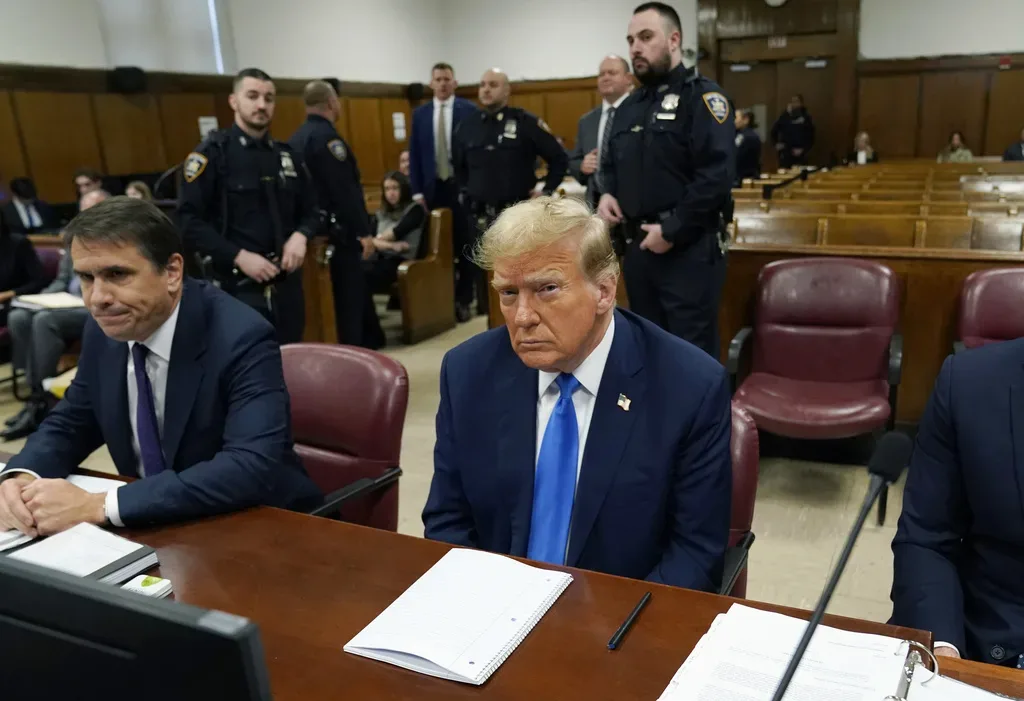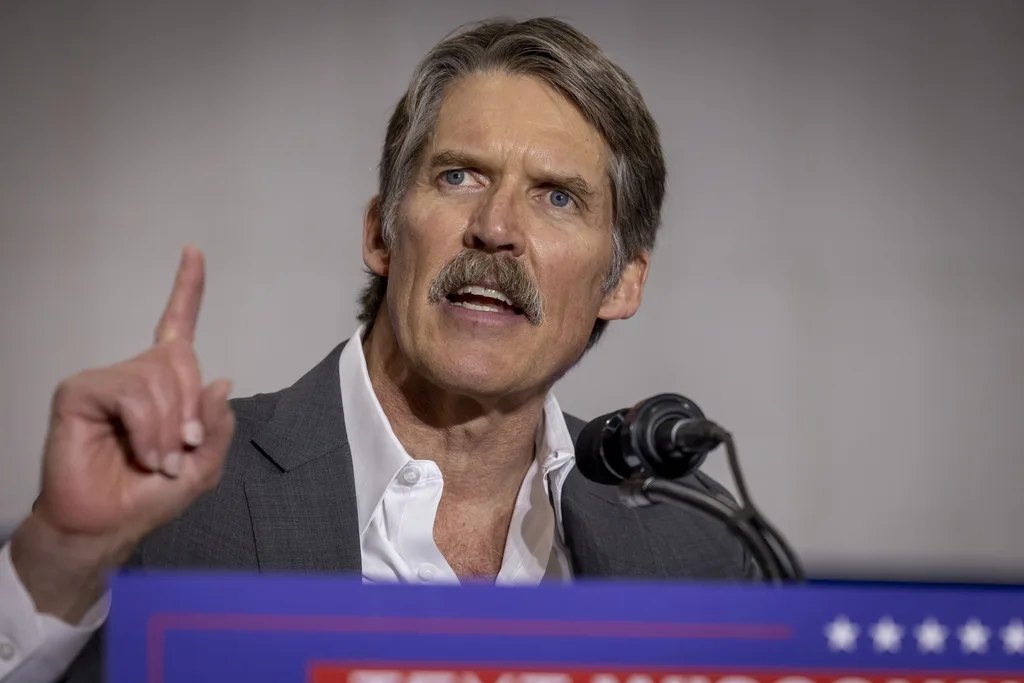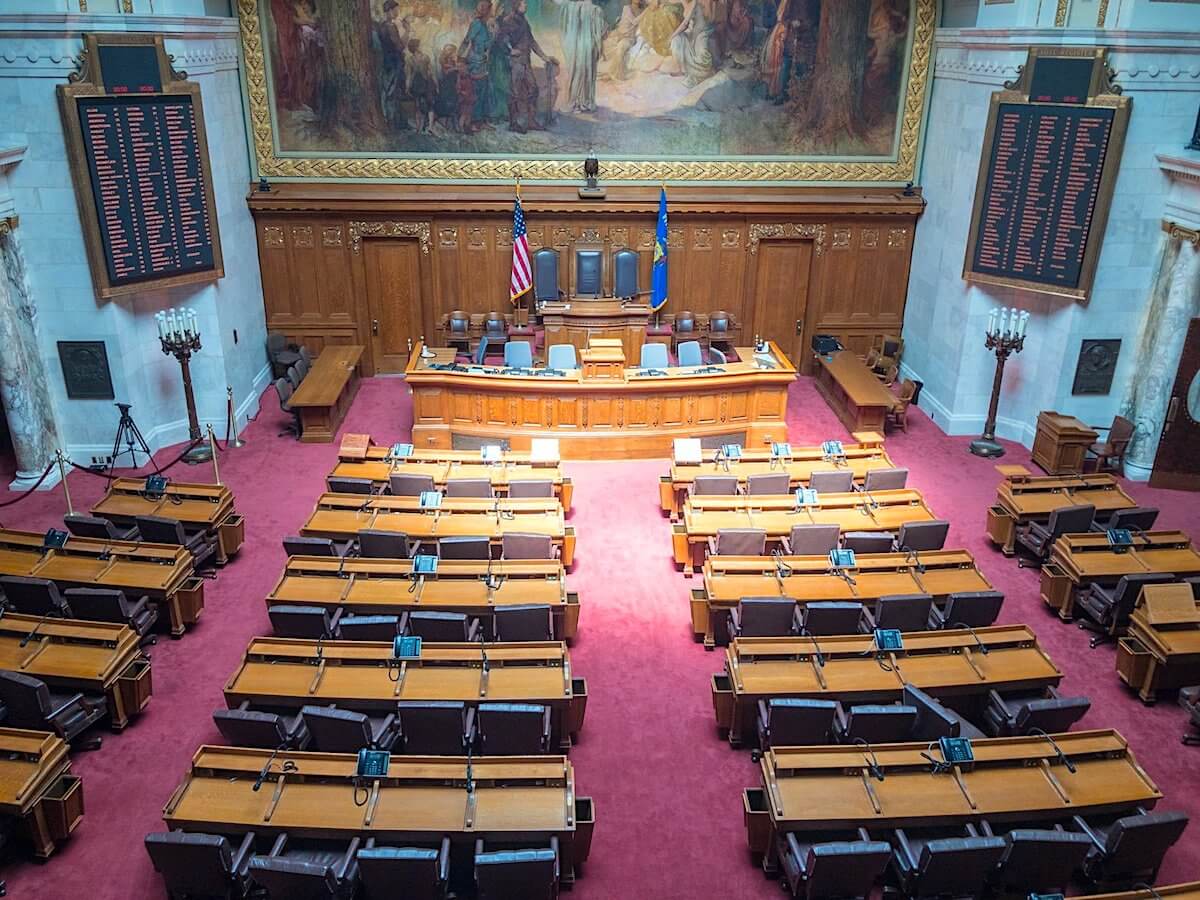
#image_title
#image_title
Only a handful of GOP lawmakers showed up to gavel in and gavel out a special session called by Gov. Evers.
In less than a minute the special session called by Gov. Tony Evers to discuss expanding BadgerCare had been gavelled in and gavelled out by Assembly Republican leadership.
It was so quick, freshman Assembly Rep. Supreme Moore Omokunde (D-Milwaukee) wasn’t sure what happened.
“That’s it?” Moore Omokunde asked a room that had held barely a dozen lawmakers—and that number was dwindling fast.
That was it. Assembly Speaker Robin Vos didn’t even make an appearance. A similar scenario played out over in the Senate chamber.
Groundhog Day
During a pre-session press conference, an exasperated reporter pointed out to Minority Leader Rep. Gordon Hintz (D-Oshkosh) that Democrats had made the same arguments for expanding BadgerCare two years ago, four years ago, and so on back to 2014, when states were first able to opt into the Medicaid expansion program through the Affordable Care Act that passed in 2010.
Since then, Wisconsin–one of 12 states nationally where Republicans have decided not to opt into the program—has remained a lone Midwestern holdout surrounded by red, blue, and purple states that have opted in.
“So why is this going to be different?” the reporter asked Hintz. “What can you do?”
Hintz said he hoped—in addition to the $600 million to fund the expansion—the $1 billion “with no strings attached” being offered through the American Rescue Plan as the state is working to recover from the COVID-19 pandemic and subsequent economic downturn would convince his Republican colleagues that the time was right.
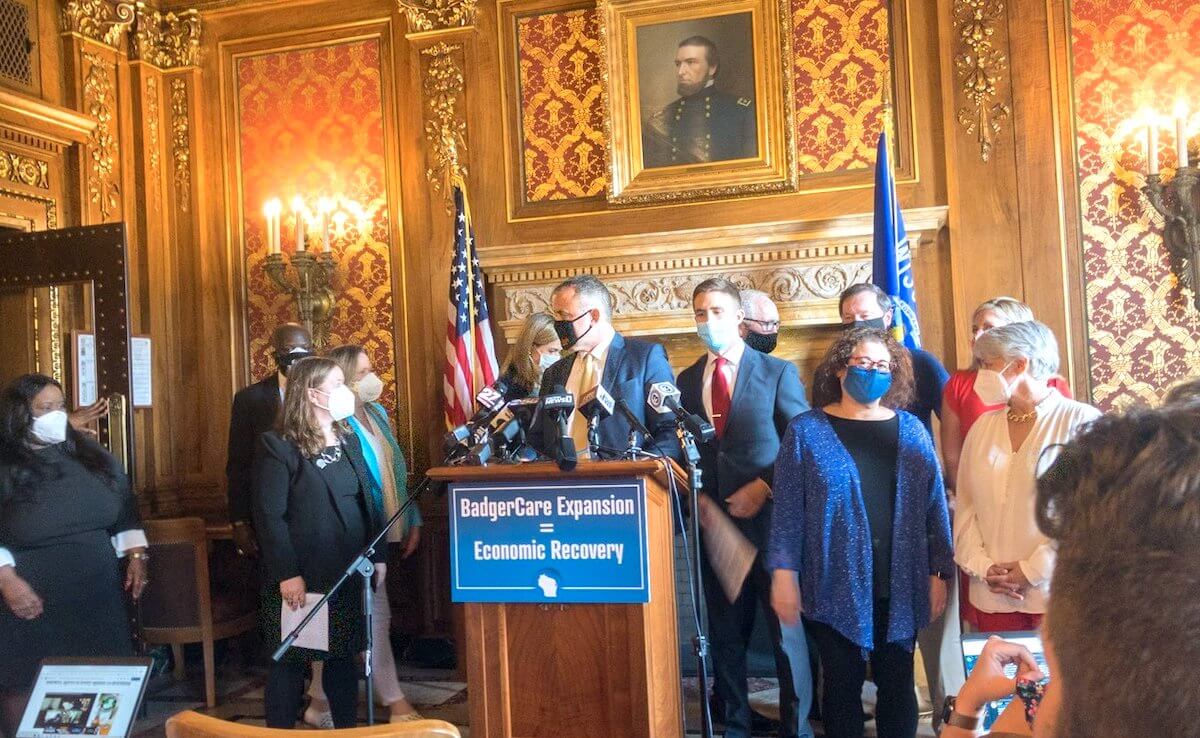
This time, Evers also provided further enticement with a list of proposed projects that would be funded with the additional $1 billion, hoping the special session would be a chance to negotiate, bring the funds to the state, and bring those projects to fruition.
“It’s breathtaking that after a year of working to prevent us from responding to COVID-19, Republicans would rather keep playing politics with our economic recovery than invest $1 billion into our state’s economy and support communities in their own districts,” said Evers in a statement. “I think we should be doing everything we can to make sure our economy bounces back from this pandemic, and this special session was about finding common ground and getting bipartisan support for our efforts. Clearly, it’s disappointing Republicans don’t seem to take that responsibility seriously, and they’ll have to explain to Wisconsinites why they made the decision they did today.”
EARLIER: Republicans Blow $3.4 Billion Hole in Budget, Cut 380 Items Evers Proposed
Hintz pointed out that Republicans’ trepidation about the program should no longer be an issue as it is now “baked in” and has paid off in dividends for the states that took it, which includes states of all shades. Expanding Medicaid is also extremely popular, with 70% support in Wisconsin polls.
“These 38 states are red and blue and purple, and they include every one of our Midwestern neighbors,” said Rep. Dan Riemer (D-Milwaukee). “They recognized it was best for their people and was best for their state’s finances. So they set politics aside and did what was best for their states.”
Also, the alternative program implemented in 2014 by former Gov. Scott Walker, which covers people up to 100% of the federal poverty line but not beyond, has not worked as well as full Medicaid expansion as other states have done.
“No other state has thought Wisconsin Republicans’ plan is better: one, because it costs more and it covers fewer [people],” Hintz said.
The Republican response has been trying to shift blame to the Affordable Care Act (ACA) by saying that people working and earning between the 100% and 138% of the federal poverty poverty level ($12,880 a year to $17,774) who would be covered by expanded Medicaid in other states could go buy subsidized insurance in the ACA marketplace.
“The [ACA] enrollment is more complicated and one of the benefits of BadgerCare is that it is simple, it’s affordable, and that’s why we really stress the word: accessible,” Hintz said. “Less than half of the 90,000 that are eligible for those subsidies actually utilize them and so we ended up having a much larger uninsured population as a result. So, at the end of the day, that argument doesn’t hold up.”
In addition to expanding healthcare access, strengthening BadgerCare would make it easier for small businesses to hire more employees, for more workers to re-enter the workforce or take promotions, and it would put extra funds in the state’s coffers for projects across the state. But as shown by Tuesday’s session, legislative Republicans are still not interested.
“It’s become clear that opposing BadgerCare expansion by Wisconsin Republicans is grounded in cynical politics,” Hintz said. “President Obama created it and, probably more importantly, Gov. Evers supports it.”
Politics
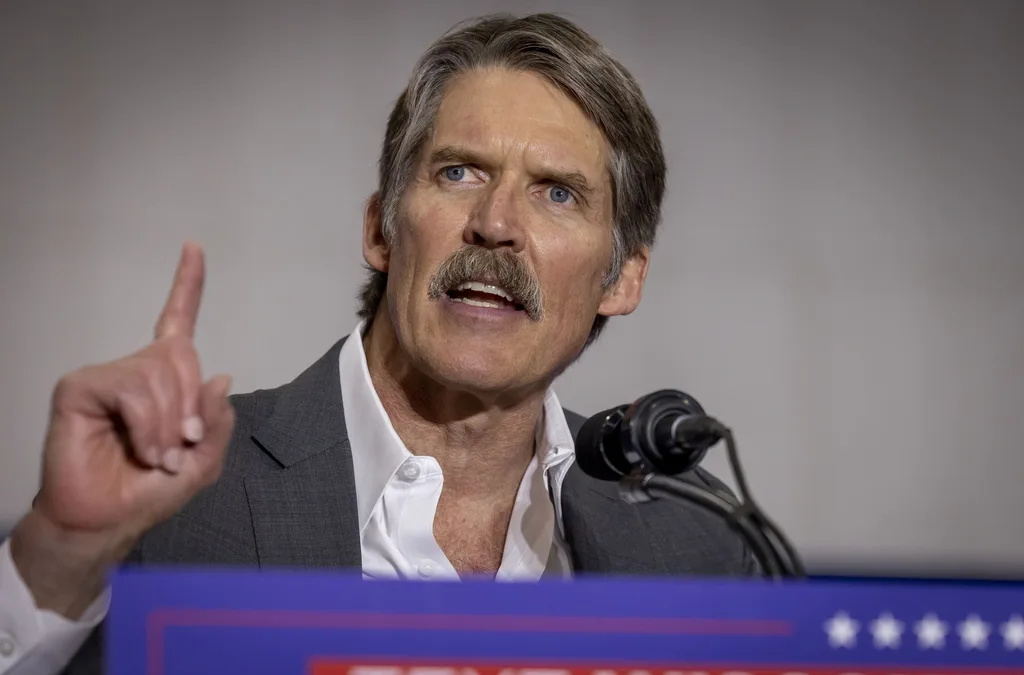
Eric Hovde’s company exposed workers to dangerous chemicals, OSHA reports say
A Madison-based real estate company run by Wisconsin US Senate candidate Eric Hovde settled with the Occupational Safety and Health Administration...
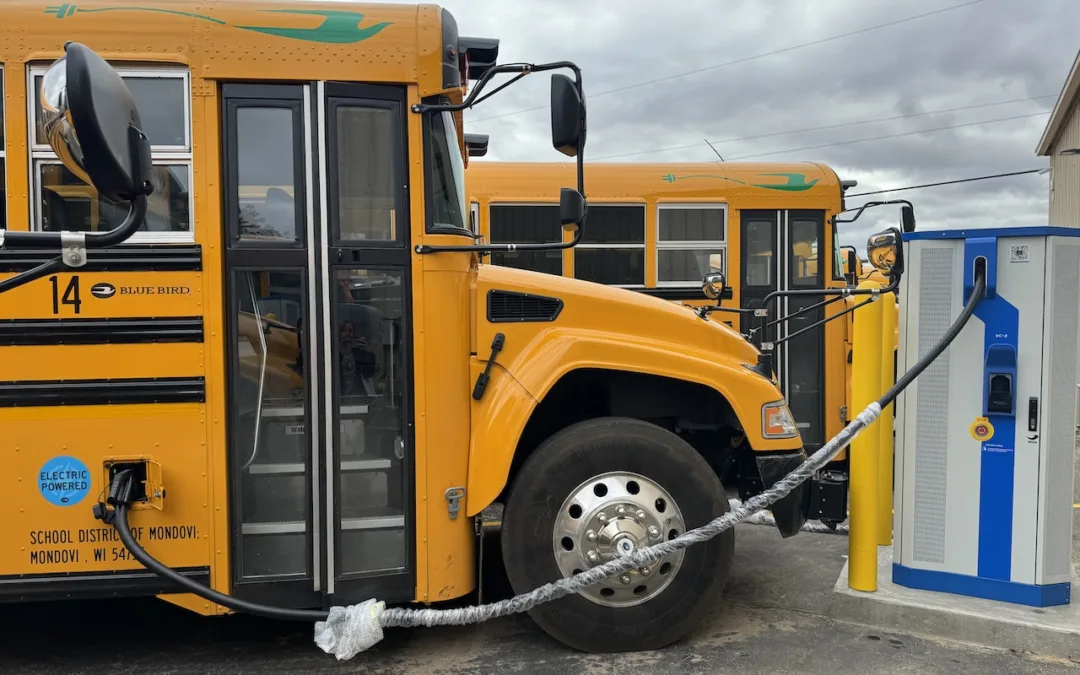
Plugged in: How one Wisconsin school bus driver likes his new electric bus
Electric school buses are gradually being rolled out across the state. They’re still big and yellow, but they’re not loud and don’t smell like...
Local News

Stop and smell these native Wisconsin flowers this Earth Day
Spring has sprung — and here in Wisconsin, the signs are everywhere! From warmer weather and longer days to birds returning to your backyard trees....

Your guide to the 2024 Blue Ox Music Festival in Eau Claire
Eau Claire and art go hand in hand. The city is home to a multitude of sculptures, murals, and music events — including several annual showcases,...


